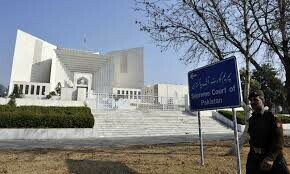ISLAMABAD, June 1: In the midst of political clamour, Council of Islamic Ideology (CII) still managed to hog the limelight and much criticism by recommending that DNA testing in rape cases cannot go beyond the words of Allah.
The reaction of civil society was sharp and immediate after the CII pronouncement that DNA testing should not provide primary evidence in a rape case, as there are clear-cut procedures prescribed in the Quran for evidence in such cases.
Apart from Human Rights Commission of Pakistan’s statement, former Supreme Court Bar Association (SCBA) president Asma Jahangir has termed it “a strange statement that has simply exposed the members of this constitutional body.”
Adding that the “logic was beyond comprehension” she said that “they are denying reaching the truth in cases of rape and secondly they have given such urgency and prominence to their recommendation as though the acceptance of DNA testing would be a great threat to Islam.”
“It will harm the fair name of Islam and interpreting religion is a serious matter and should not be left to people who are making a mockery of their positions,” she said.
CII’s uneasy relationship with science
CII Chairman Maulana Muhammad Khan Sherani, however, claims that this is not his own version or interpretation of the law.
“Whenever there is a number or the formula is prescribed clearly that law has to be followed – like it is clearly stated that four witnesses are needed to prove rape or adultery.”
He said DNA could be used only when four witnesses testified to the crime but the accused denied charges. In other words, DNA could be used only to supplement primary evidence of four witnesses.
“Four witnesses are the primary requirement, and without them even the DNA report is not acceptable,” said Maulana Mohammad Khan Sheerani, adding: “The words of Allah Almighty are perfect while science is always improving and in the process rejecting its previous theory; hence one cannot rely on science altogether.”
However, by saying this, the maulana did not explain why DNA would even be needed if four witnesses were present and willing to testify to such a serious crime.
The law and forensic evidence
However, his views have not gone down well with legal experts.
Islamabad-based legal practitioner Barrister Afzal Hussain said: “The only problem is that religious segments are not aware of developing technologies so they take everything as anti-religion.”
He pointed out that currently scientific methods were used to establish criminal acts including rape.
For instance, he said, in all the rape cases the accused needs to get a ‘medical legal certificate’ which is basically a medical examination to determine if rape has taken place. This test is based on medical knowledge of the human body.
Similarly, various forensic methods are used to collect evidence to help solve various criminal cases such as murder and rape. From fingers prints to blood tests to autopsies and the use of DNA – all these are scientific methods that are used to collect evidence and are acceptable under law, Pakistani and international. “So what is wrong with the DNA test?” Barrister Hussain asked.
He also countered the point of view of senior CII Ulema by saying that the requirement of four witnesses was not needed for rape case.
Barrister Hussain said that in cases of adultery and consensual sexual relationship the accuser had to provide four witnesses to prove his point.
In fact, it is necessary to point out that the recommendations of the CII are not binding on the government or any legal authority.
“The observations of the CII can be used as supporting or what we call persuasive evidence in a case,” said eminent criminal lawyer Aslam Khaki.
He said under the legal system, the Federal Shariat Court – apart from other courts – has also awarded punishments based on circumstantial evidence such as medical legal examination and DNA test reports.
Why did CII pronounce on rape?
The issue of rape and use of DNA were taken up by the CII based on a reference forwarded by an ordinary citizen.
Though this provides some assurance that the CII does not take up issues arbitrarily and only reacts to requests that are sent to it, this still means that the Council will continue to offer opinions on various subjects, adding to the confusions of an already confused society.
For example, another reference has been sent to the CII seeking advice if medical examination can replace Idat, a mandatory period to confirm that the divorcee or the widow is not expecting.
“You see in this case too there is a prescribed timeframe so science cannot breach this law,” said another Ulema at the CII, who did not want to be named as he did not want to discuss the matter before it is taken by the Council.
One can only wonder at the next opinion offered and the reaction it will elicit.















































Dear visitor, the comments section is undergoing an overhaul and will return soon.